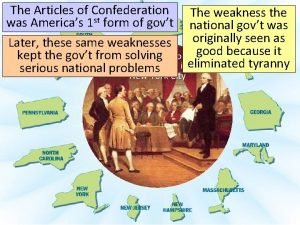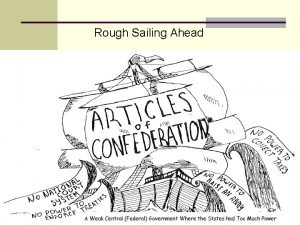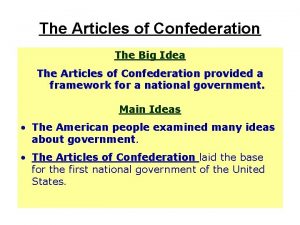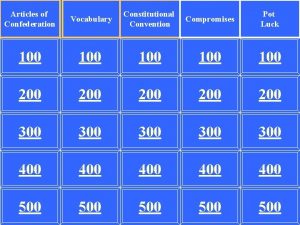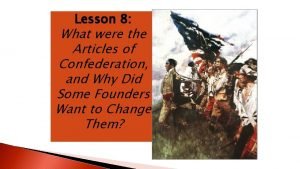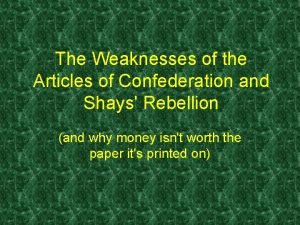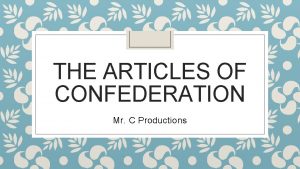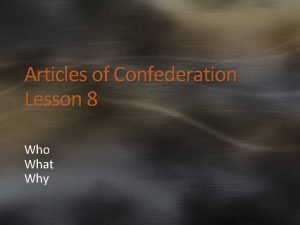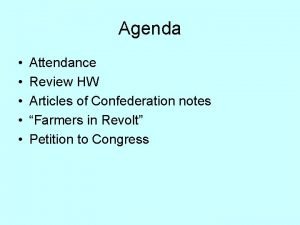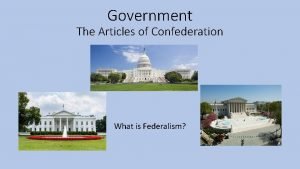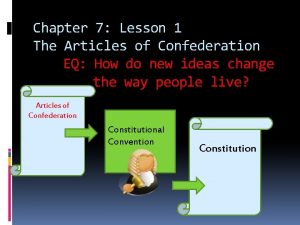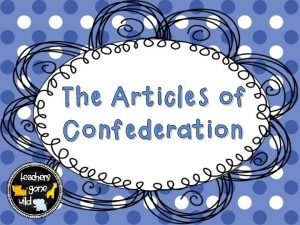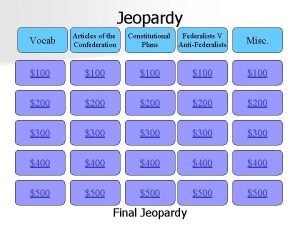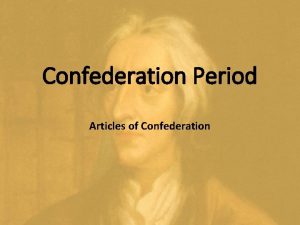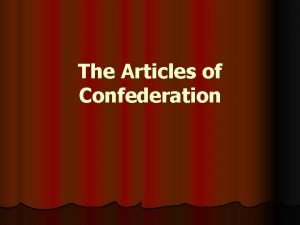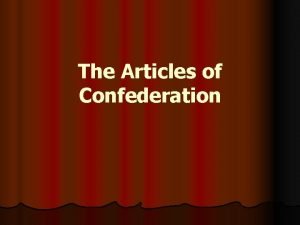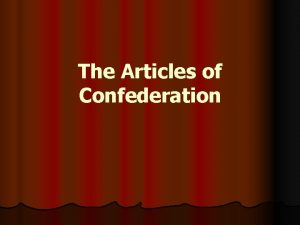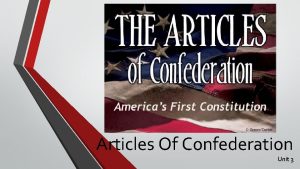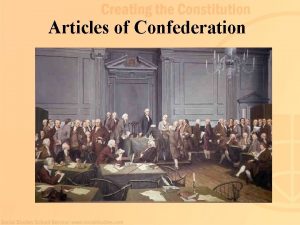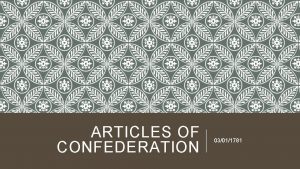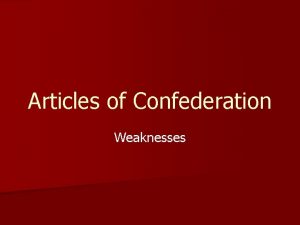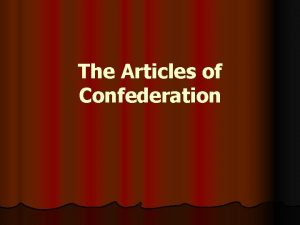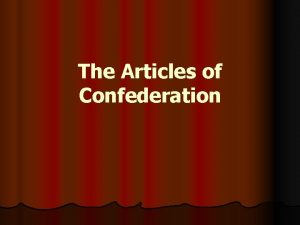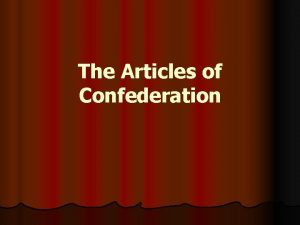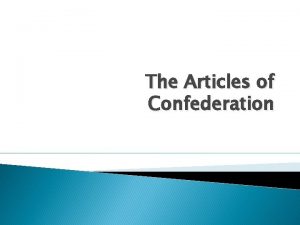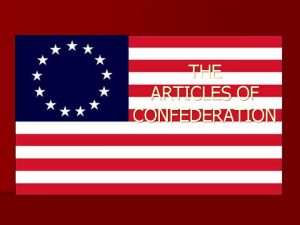The Articles of Confederation The Articles of Confederation














- Slides: 14

The Articles of Confederation

The Articles of Confederation • The Articles were written in 1777 by John Dickinson, a Penn. statesman • The Articles were accepted by Congress in 1781 • Considered the first national constitution

The Articles of Confederation • The fear of having too much power in one person’s hands reflects the experiences the colonies had under a monarchy • In the Articles the state governments limit the power of the national Congress

Weaknesses of the Articles of Confederation • Congress had no power to raise taxes • Congress had no power regulate foreign or state trade • Laws had to be approved by 9 out of 13 states • Congress did not have the power to enforce laws

Strengths of the Articles of Confederation • The Treaty of Paris 1783 was signed • The Northwest Ordinance was past • Had the power to declare war and peace, print money, make treaties and settle state disputes

Strengths of the Articles of Confederation: Settling Western Lands • The Land Ordinance of 1785, stated that land in the west was to be surveyed using a grid system to establish 6 mile blocks • The Northwest Ordinance assisted in the orderly expansion of the United States, it outlined a plan for applying for statehood to western territories • 5, 000 free males who own 50 acres can start govt • Population of 60, 000 could become a state

Settling Western lands • The Northwest Ordinance provides an orderly settlement process in the West • It promised • • no slavery education freedom of religion trial by jury

Northwest Territory • The Northwest Territory was east of the Mississippi River and north of the Ohio River. • The states formed from this area were: • • • Ohio Michigan Indiana Illinois Wisconsin

Reasons for Shay’s Rebellion • Farmers are required to pay debts in gold, they have no money because they were not paid during the war • Wealthy lawmakers invested their money in the war too. And seek to get money from the farmers debts

Shays’s Rebellion • Poor farmers are not represented in the Mass legislature and cannot pass debt relief laws • The rebellion will free debtors from prisons and close courts that are hearing cases against farmers

Shays’s Rebellion • The Mass militia is called out to stop it • Poor farmers in 1791 elect officials who support their stance and will close courthouses and demand financial help from the Congress • Shays’s Rebellion will prompt national leaders to create a stronger central government

Samuel Adams Said What? ! • “Rebellion against a king may be pardoned, or lightly punished, but the man who dares to rebel against the laws of a republic ought to suffer death”

Views about Shays’s Rebellion • Adams will also write a law called the Riot Act, which prohibits 12 people or more from meeting and gives the government the power to shoot rioters! • Samuel sure has changed since 1776!

Thomas Jefferson Said What? ! • "A little rebellion now and then is a good thing. It is a medicine necessary for the sound health of government. God forbid that we should ever be twenty years without such a rebellion. "
 Legislative branch
Legislative branch Rough sailing ahead political cartoon meaning
Rough sailing ahead political cartoon meaning Articles of confederation big ideas
Articles of confederation big ideas Articles of confederation vocabulary
Articles of confederation vocabulary Problems with articles of confederation
Problems with articles of confederation Articles of confederation strengths
Articles of confederation strengths Articles of confederation
Articles of confederation Lesson 8 the articles of confederation
Lesson 8 the articles of confederation Articles of confederation fail
Articles of confederation fail Articles of confederation fail
Articles of confederation fail Chapter 7 lesson 1 the articles of confederation answer key
Chapter 7 lesson 1 the articles of confederation answer key Strengths and weaknesses of the articles of confederation
Strengths and weaknesses of the articles of confederation Political weaknesses of the articles of confederation
Political weaknesses of the articles of confederation Articles of confederation clipart
Articles of confederation clipart Articles of confederation jeopardy
Articles of confederation jeopardy
